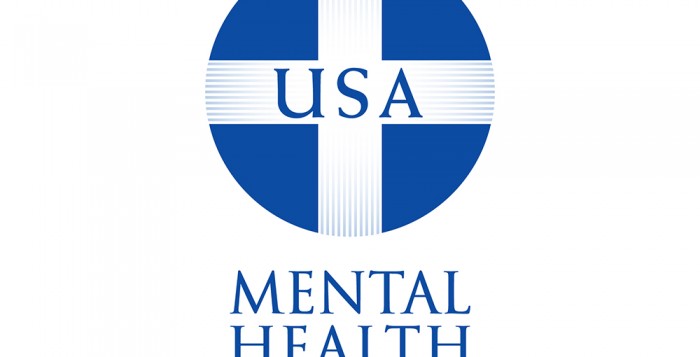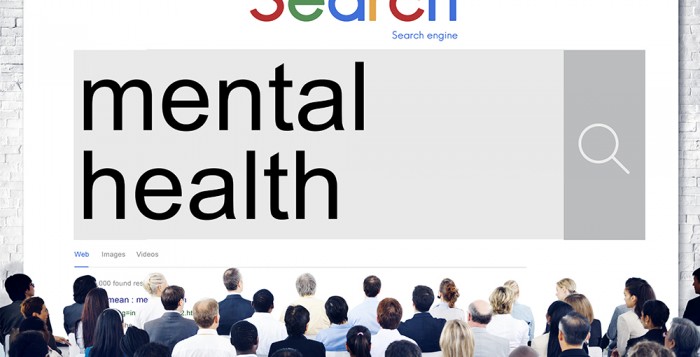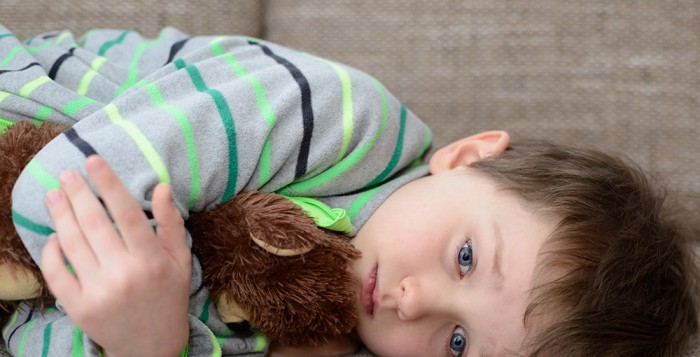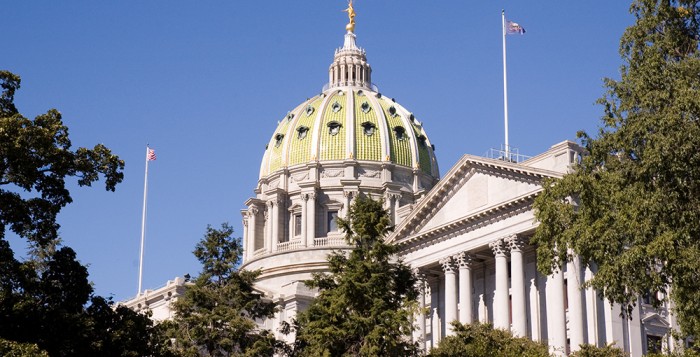Contact Your Senator to Support Mental Health First Aid Training Funding
 Now that Congress has finalized the FY2017 appropriations process, it is poised to begin working on appropriations for FY2018.
Now that Congress has finalized the FY2017 appropriations process, it is poised to begin working on appropriations for FY2018.
Mental Health First Aid champion Senator Richard Blumenthal (D-CT) is today circulating a letter requesting continued funding for Mental Health First Aid trainings. The program that provides training to emergency first responders, law enforcement personnel, primary care personnel, Human Resources professionals, faith community leaders, veterans, teachers, and students and their parents.
Will you please take two minutes and urge your Senator to sign on to the Dear Colleague letter (text below) supporting Mental Health First Aid training for this important population?
Earlier this year, Representatives Lynn Jenkins (R-KS) and Doris Matsui (D-CA) circulated a similar letter and due, in part, to outreach by National Council advocates, 23 bipartisan legislators signed on to a letter supporting Mental Health First Aid in the House.
Today, we are asking you again to demonstrate that bipartisan, nationwide support for Mental Health First Aid and ask your Senators to sign on.
Thank you for your hard work and advocacy!
Sincerely,
Chuck Ingoglia
Senior Vice President, Public Policy and Practice Improvement
National Council for Behavioral Health
++++++++++++++++++++++++++++++
The Honorable Roy Blunt The Honorable Patty Murray
Chairman Ranking Member
Senate Labor/HHS Appropriations Senate Labor/HHS Appropriations
Subcommittee Subcommittee
135 Dirksen Senate Office Bldg. 156 Dirksen Senate Office Bldg.
Washington, D.C. 20510 Washington, D.C. 20510
Dear Chairman Blunt and Ranking Member Murray:
We are writing to urge you to include the current funding level of $15 million for Mental Health First Aid and important Committee report language in the FY 2018 Labor, Health and Human Services, Education, and Related Agencies (L-HHS) appropriations bill. This important mental health training program will improve education and awareness about mental illness in our communities, giving those trained the ability to intervene and address mental health crises as they happen.
Mental Health First Aid is an evidenced-based education program that helps the public identify, understand, and respond to the signs of mental illness. Since FY 2014, the Substance Abuse and Mental Health Services Administration (SAMHSA) has funded state and local educational agencies to support the training of school personnel including classroom teachers, counselors, and principals. Most recently, the agency has maintained the program’s youth focus, but expanded the eligible grantees to include youth-focused organizations and nonprofits, as well as community colleges.
Last year, as part of its One Mind Campaign, the International Association of Chiefs of Police (IACP) endorsed Mental Health First Aid as an evidence-based practice to improve law enforcement interactions involving persons with mental illnesses. To date, nearly sixty local law enforcement agencies have adopted the IACP One Mind Campaign pledge to train and certify 100 percent of their incoming cadets, sworn patrol officers, and police dispatchers in Mental Health First Aid.
In view of these developments, we are proposing the inclusion of committee report language that would add public safety audiences to the Mental Health First Aid program. Particularly for law enforcement personnel, the crisis de-escalation component of the training protects the lives of both officers and citizens experiencing psychiatric crises.
Therefore, we ask that the Committee add this language to the FY 2018 Department of Health and Human Services (HHS) report:
Mental Health First Aid – The Committee is pleased with the progress of Mental Health First Aid including training more than 740,000 Americans to recognize the signs and symptoms of common mental disorders. In continuing competitive funding opportunities, SAMHSA is directed to include as eligible grantees local law enforcement agencies, fire departments, and emergency medical units with a special emphasis on training for crisis de-escalation techniques. SAMHSA is also encouraged to prioritize training for veterans, armed services personnel, and their family members within the Mental Health First Aid program.
As mental illness impacts the lives of millions of Americans and their families and too many mental health disorders continue to go undiagnosed and untreated, we must make prudent investments to improve mental health awareness in our communities. That is why we urge you to support funding for Mental Health First Aid in FY 2018 and include this important report language.
Sincerely,
Richard Blumenthal
U.S. Senator
Questions, contact Jack Phillips.
RCPA Submits Letter on Agency Unification and Government Efficiencies
Late last week, RCPA submitted a letter to Secretaries Dallas, Murphy, Osborne, and Acting Secretary Smith regarding agency unification and government efficiencies. The letter was also sent to all of the oversight committee chairs. The list of efficiencies was compiled from input received from RCPA members and staff. Questions, contact Jack Phillips.
Senate Committee Passes SB 561
Today, the Senate Rules and Executive Nominations Committee passed SB 561. The senate bill amends the Regulatory Review Act to require the General Assembly and the Governor to approve all regulations with an economic impact or cost to the Commonwealth, its political subdivisions, and to the private sector that exceed $1.0 million.
RCPA staff has been successful in amending the bill to include legislative language – “the private sector” – because of the economic impact regulations have on health and human service providers’ budgets. RCPA staff continues to work with the prime sponsor and the state senate on this important piece of legislation. Questions, contact Jack Phillips.
Contact your State Legislators Regarding Human Service Funding Cuts
The Secretaries of the Departments of Human Services, Aging, Health, and Drug and Alcohol Programs sent a letter to the Senate and House Appropriations Committee Chairs and copied other committee chairs, expressing grave concerns about proposed funding cuts to human services programs in House budget bill HB 218.
RCPA strongly supports the Secretaries’ position. RCPA believes that these funding cuts will hurt our providers and those they serve; therefore, RCPA asks members to contact your state senator and representative and ask them to fully fund the line items that have been targeted for cuts. Questions, contact Jack Phillips, RCPA Director, Government Affairs.
Urge Your Legislators to Oppose the Revised American Health Care Act
Congress will vote TODAY on the American Health Care Act. While congressional leaders believe they have the votes to pass the health care reform bill, experts are saying this vote will come down to the wire.
With dozens of legislators still undecided, constituent advocacy and outreach are the only things that will move votes into the “No” column. Will you take action today and urge Congress to vote “No” on the American Health Care Act?
- Dial this number: 202-224-3121 and ask for your Representative.
- Share with them this message:
- Your message: “I am calling about the American Health Care Act. I urge you to oppose the amended bill and reject any proposal that results in cuts or rollbacks of Medicaid. The amended bill directly targets important protections like the essential health benefits and protections for those with pre-existing conditions and hurts efforts to achieve parity in health care. Any proposals that rollback Medicaid coverage or restrict people’s access to treatment will have a devastating effect on millions of Americans with mental illness or addiction. I’m calling from [city, state, and zip] and my name is [first and last name].”
**Need help finding your Rep? Click here!**
Since January, thousands of National Council advocates have engaged with us and their legislators, writing letters, making phone calls and hosting meetings. Thousands of advocates have worked hard to ensure their voices and their priorities were heard on Capitol Hill. We thank you for that amazing work and hope you will join us once again today as we work to stop the passage of this harmful legislation.
Together, we can work to preserve Medicaid and protect coverage of mental health and addictions treatment for millions of Americans. Together, we can #Unite4BH!
Sincerely,
Chuck Ingoglia
Senior Vice President, Public Policy and Practice Improvement
National Council for Behavioral Health
DHS Hosts Mental Health Awareness Fair
(From DHS)
FOR IMMEDIATE RELEASE
May 3, 2017
Department of Human Services Hosts Mental Health Awareness Fair
Governor Tom Wolf proclaimed May Mental Health Awareness Month
Harrisburg, PA – Today, the Department of Human Services (DHS) in collaboration with PA System of Care Partnership, PA Healthy Transitions Partnership, and Youth M.O.V.E. PA, hosted the 2017 Mental Health Awareness Fair in Harrisburg to raise awareness and understanding of mental illness and substance use disorders. Governor Tom Wolf has proclaimed May Mental Health Awareness Month.
“Mental illness and substance use disorders affect Pennsylvanians from all walks of life. Only about half of those people, however, seek treatment,” said DHS Secretary Ted Dallas. “The department is committed to increasing awareness and providing quality care to these individuals so that all Pennsylvanians who need help can get it.”
Representative Mike Schlossberg (D-Lehigh) joined the event to speak about the challenges he has seen in trying to reduce the stigma associated with mental illness.
“No person with mental illness should ever feel alone,” said Representative Schlossberg. “Events like these are more important than ever because we have to make sure that everyone who suffers from mental illness has the chance to obtain treatment and live healthy, productive, and happy lives.”
To help individuals gain access to treatment, DHS was recently awarded a Certified Community Behavioral Health Clinic (CCBHC) demonstration grant by the federal Substance Abuse and Mental Health Services Administration. CCBHCs will enhance access to behavioral health services for Medicaid and CHIP beneficiaries, help individuals with mental illness and substance use disorders obtain the health care they need, allow individuals to have access to a wide array of services at one location, and remove the barriers that too often exist across physical and behavioral health systems. CCBHCs are a step closer to ending the stigma associated with mental illness.
Each mental illness has its own set of symptoms but some common signs of mental illness can include the following:
- Excessive worrying or fear
- Feeling excessively sad or low
- Confused thinking or problems concentrating and learning
- Extreme mood changes, including uncontrollable “highs” or feelings of euphoria
- Prolonged or strong feelings of irritability or anger
- Avoiding friends and social activities
- Difficulties in understanding or relating to other people
- Changes in sleeping habits or feeling tired or experiencing low energy
- Changes in eating habits such as increased hunger or lack of appetite
- Difficulty perceiving reality (delusions or hallucinations, in which a person experiences and senses things that don’t exist in objective reality)
- Inability to perceive changes in one’s own feelings, behavior, or personality
- Abuse of substances like alcohol or drugs
- Multiple physical ailments without obvious causes (such as headaches, stomach aches, vague and ongoing “aches and pains”)
- Thinking about suicide
- Inability to carry out daily activities or handle daily problems and stress
- Intense fear of weight gain or concern with appearance (mostly in adolescents)
For more information on how to access mental health services, click here.
MEDIA CONTACT: Rachel Kostelac, 717-425-7606
DHS Releases 2016 Child Protective Services Report
(From DHS)
FOR IMMEDIATE RELEASE
May 3, 2017
Harrisburg, PA – Today, the Department of Human Services (DHS) released the 2016 Child Protective Services report. The newly formatted report is available here.
“This year’s revamped report includes all county-specific information in one section, which will improve readability and increase usability,” said DHS Secretary Ted Dallas. “We want to ensure this critical information is available for all Pennsylvanians to increase awareness on the issue and empower people to report suspected abuse or neglect.”
The child welfare system in Pennsylvania is state-supervised and county-administered with both agencies having vital roles in the protection of children. DHS is responsible for oversight and enforcement of laws, regulations, and policies that guide the provision of child welfare services at the county level by each of the 67 counties in Pennsylvania. DHS provides funding, oversight, and technical assistance to each county agency. Additionally, DHS is responsible for the licensure of public and private child welfare agencies and the investigation of complaints received regarding these agencies.
In 2016, 46 children lost their lives as a result of abuse, up from 36 in 2015. Seventy-nine nearly died as a result of abuse, an increase from 57 in 2015. Every child fatality and near fatality is closely examined by review teams to determine what, if any, risk factors may have contributed to the child’s death with an eye toward preventing future child fatalities. Most children who die or nearly die due to abuse are under the age of 4 and their parents are most often responsible for their death or near death. Violent acts or lack of supervision are noted as the leading reasons for these fatalities and near fatalities.
“One case of child abuse or neglect will always be one too many. Increased awareness in the commonwealth is leading to more Pennsylvanians taking active steps for prevention,” said Dallas. “Although reports continue to increase, the incidents of substantiated child abuse reports are approximately the same as last year – 1.7 per 1,000 children versus 1.6 in 2015.”
The report includes both child protective services (CPS) and general protective services (GPS) reports.
CPS reports are those that allege a child might have been a victim of child abuse. Reports alleging that a child under 18 years of age may have been abused are accepted for investigation when reported prior to the victim’s 20th birthday.
- Girls are abused at a higher rate than boys;
- Rural counties have a higher substantiation rate than urban counties, 2.6 and 1.6 respectively;
- Statewide substantiated reports of child abuse remained relatively constant from 1.6 per thousand children in 2015 and 1.7 per thousand children in 2016;
- Sexual abuse remains the leading category of abuse, followed by physical abuse; and
- Parents continue to constitute the largest group of persons responsible for abuse of their children.
GPS reports are those reports that do not rise to the level of suspected child abuse, but allege a need for intervention to prevent serious harm to children. The department is responsible for receiving and transmitting reports to county children and youth agencies when GPS concerns are alleged.
- This is only the second year that we have had detailed data on GPS reports statewide.
- The number of GPS reports received increased from 2015 to 2016 (141,938 to 151,087).
- 76,384 reports were assessed involving 113,786 children:
- 31,649 of those reports were determined to be valid involving 46,525 children;
- Parental substance abuse was the leading factor involved in these reports;
- Mothers were most often responsible for these allegations; and
- Like CPS reports, rural counties have a higher validation rate than urban counties, 27.6 and 13.9 respectively.
- 72,865 reports were screened out by county children and youth agencies, and 1,838 were awaiting an outcome at the time the data was pulled.
DHS continues to process child abuse clearance requests in less than six days, and in 2016, more than 943,000 employee and volunteer requests were processed.
The 2016 Child Protective Services report is available here. To report suspected child abuse, call ChildLine at 1-800-932-0313.
MEDIA CONTACT: Rachel Kostelac, 717-425-7606
PA Provider Association Letter Regarding ACA
RCPA has signed on to a multi-association letter being sent to the PA congressional delegation in Washington, DC urging legislators to carefully evaluate any effort to repeal and replace the Affordable Care Act (ACA), given the critical need to maintain funding for the current Pennsylvania Medicaid program and to protect the vulnerable citizens who rely on Medicaid for critical and necessary care.
Joint Senate Committee Hearing on Proposed Consolidation
The Senate Committees on Health and Human Services, Aging and Youth, Intergovernmental Operations, and the Appropriations’ Health and Human Services Subcommittee will hold a hearing to gather testimony on the proposed consolidation of the Departments of Human Services, Health, Aging and Drug & Alcohol. The hearing will take place on Monday, May 1, 2017, from 11:00 am until 3:00 pm at the William Pitt Union Assembly Room on the University of Pittsburgh Campus.
Joint hearings were already held in Harrisburg and Reading. RCPA presented testimony at the Reading hearing on April 13. Please contact Jack Phillips, RCPA Director of Government Affairs, with any questions.



















